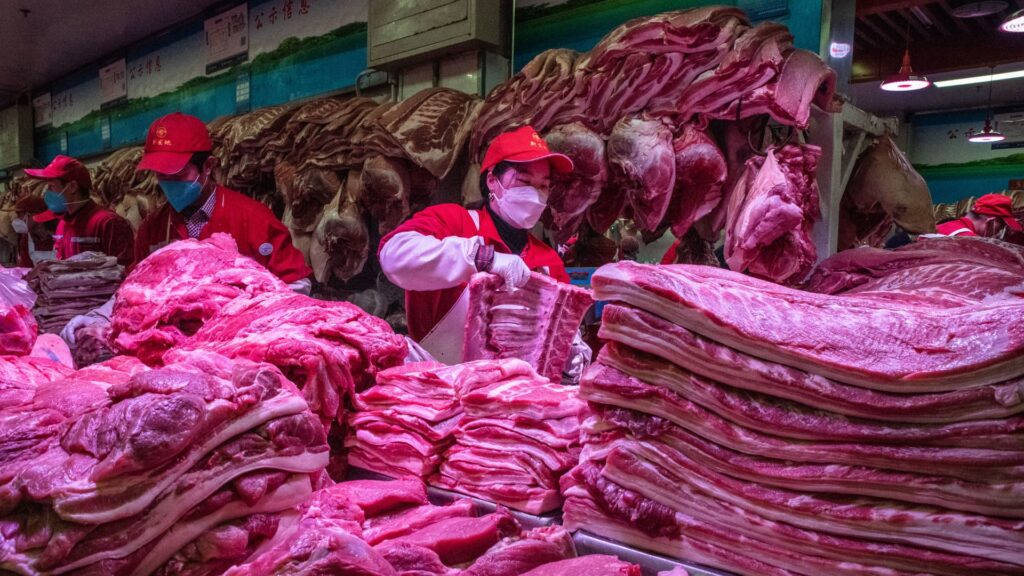Pork on sale at a wholesale market in Beijing, China.
Bloomberg | Bloomberg | Getty Images
Beijing launched an anti-dumping investigation into certain pork products from the European Union, days after Brussels raised tariffs on Chinese cars.
China’s Ministry of Commerce announced on Monday that it would investigate imported pork and its by-products (including pig offal, lard, pig intestines, pig bladders and pig stomachs) originating from the EU.
The investigation is expected to be concluded within 12 months but may be extended for a further six months, the ministry said.
The European Union Chamber of Commerce in China said the EU pork investigation was Beijing’s retaliation for recent tariffs on Chinese electric vehicles.
“This is not the first time an investigation announced in one jurisdiction has received the same response, so it is not surprising given the EU’s EV investigation,” a spokesperson said in a statement to CNBC.
An official from China’s Ministry of Commerce said in response to questions that the investigation was initially initiated by a formal complaint from the China Animal Husbandry Association, a domestic industry group.

The official added that the investigating authority determined that the request met the criteria for initiating an investigation under Chinese and World Trade Organization laws.
A copy of the complaint shared by the Ministry of Commerce accused the EU pork industry of overcapacity and benefiting from huge subsidies, which it said had impacted China’s domestic pork industry.
The filing’s wording mirrors similar recent accusations by Western officials and industry against China’s electric vehicle and solar exports.
Last week, the European Commission announced after an investigation that it would impose additional countervailing duties of up to 38% on imported Chinese cars.
Jamon Iberico, a type of Spanish ham or presanto, is a cured pork leg hanging in the central market of the Atarasanas food market in Malaga, Spain.
John Keble | Getty Images News | Getty Images
In May, the United States imposed a 100% tariff on Chinese electric vehicle imports, up from the previous 25%. Import taxes on Chinese solar cells have doubled – from 25% to 50% – while tariffs on Chinese steel and aluminum have tripled.
Beijing criticized the EU’s move, with a Chinese Foreign Ministry spokesman saying on Thursday that Beijing would take “all necessary measures” to defend its trade interests as well as WTO rules and market principles.
At the same time, the announcement of the investigation has raised concerns in the European Union’s pork industry, while China is one of the world’s largest markets.
The Danish Agriculture and Food Council told Reuters the industry would be severely hit if China restricted European meat imports.
Meanwhile, Spain, the EU’s largest pork exporter to China, called on EU officials to find a quick solution to avoid damaging tariffs, the report added.
— CNBC’s Evelyn Cheng contributed to this report.

